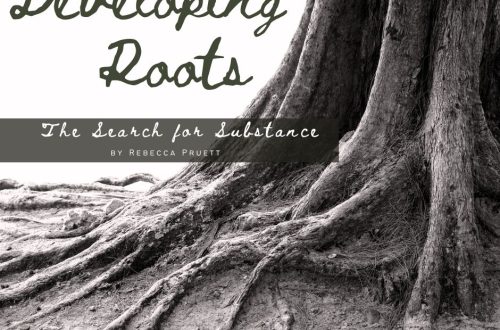
The Bible: Understanding God or Validating Yourself?
I used to think deception was obvious. That false teaching came with flashing warning signs and people who knew they were frauds. But the more I’ve seen, the more I realize that counterfeit Christianity is far more subtle.
When I talk about counterfeit Christianity, I’m not talking about people who fake their faith but know they aren’t Christians. I’m talking about people who are fully convinced they are—people who live the life, do the things, and have no idea they’ve never experienced the transformative power of the legitimate Gospel. (Matt. 7:21-23) If you’ve done any reading on my blog, you know that this was my experience, and it’s a topic I am passionate about.
One of the greatest ironies I’ve encountered along the way is realizing how many people, including myself at one time, had a strong devotion to God’s Word— even while they were completely deceived.
How is that possible?
The very idea seems absurd.
Misreading the Bible: A Costly Mistake
I spent over 20 years in church, voraciously consuming the Bible, yet I was completely and utterly deceived. And I didn’t just skim a few verses—I read entire books in a day. You’d think that kind of immersion would have fortified me against deception but it didn’t. The truth was right in front of me the whole time, laying across every page, and I still missed it.
So what gives? It’s God’s Word! How could someone who reads it so fervently still be deceived?
As unlikely as it sounds, it happens more often than we realize. In fact, in many cases, it’s not just possible—it’s likely. Here’s why.
For years, I approached the Bible in a way that seemed deeply spiritual but was, in reality, dangerously misguided. I flipped through its pages, searching for encouragement or a promise I could cling to. I would randomly select verses or chapters or books and interpret them in all kinds of ways.
- An Old Testament battle with a favorable outcome = A promise for victory
- Passages about Pharisees = Messages about my latest enemy
- A random verse about “leaving your country” = A divine nudge to upend my entire life
In our early years of marriage, when my husband and I were struggling with infertility, I read God’s promise to Abraham and thought God was giving me an absolute promise that I’d have a baby. While God was gracious enough to give me children years later, I know now that this isn’t what that verse meant at all. And I totally missed the breath-taking truth that was there, because of the way I was reading the Bible.
I wasn’t reading Scripture to know God and learn about Him. I was reading it to validate my positions, to make sense of my circumstances, to cater to my desires, and to find things that made me feel seen and special.
I wasn’t reading Scripture to know God and learn about Him. I was reading it to validate my positions, make sense of my circumstances, to cater to my desires, and to find things that made me feel seen and special.
This was not a harmless practice.
The result of this method of interpreting Scripture was devastating, and ultimately traumatizing—not only to myself but to others. Life-altering decisions were made on dangerously subjective premises. Life-or-death situations dangled upon precarious, cryptic promises. The whole structure of my “Christianity” was built on shifting sands—and precious hearts, minds, and lives were casualties in the eventual collapse.
The Bible became unstable and incredibly confusing.
The very thing I was certain I had anchored my life upon seemed to betray me.
It felt like God was gaslighting me.
It was as if He was extending special promises but then snatching them back. Sending me on missions just to burn me—to humiliate me and let me fail miserably—and then to laugh cruelly in my face. It felt like He was toying with my mind in diabolical fashion.
In that season, I began to despair about the character of God and to distrust Him. God seemed like a monster, and I nearly laid my Bible down for good—ready to put the turmoil and confusion behind me.
Thankfully, however, God intervened on my behalf. Like David, “in my distress I called unto the Lord and he heard me.” (Psalm 120:1) In His great mercy, He gently led me to the understanding that the Bible isn’t about us. It’s about God. It’s about His character. It’s about His faithfulness and His story of redemption through Christ.
How Can People Love the Bible and Still Be Deceived?
Looking back, it’s very plain to me that I was—indeed—being gaslighted. It wasn’t God or His Word doing this to me, though. This was the clear-cut Modus Operandi of Satan! (Matthew 4:1–11). It’s his entire aim to mangle the Gospel and pervert God’s Word. It’s his passion to drive us to a place where we doubt the character of God, and ultimately, to push us as far from our Creator as he possibly can!
This is the demonic agenda behind twisted Scripture. The devil can and will work through people to distort and maim God’s Word, so it shouldn’t surprise us to see it done all around us.
I had to learn this important lesson—that just because Scripture is used, doesn’t mean its use is validated.
Even if someone claims to “love” God’s Word—if they are mishandling it—the truth is, they don’t.
A person that mishandles Scripture mocks God. Their narratives turn our eyes away from Christ and upon them, or upon ourselves. They handle God’s Word like the devil himself handles it! They are not gripped by God’s chief message. They are enamored with a vile perversion of it. Make no mistake—though these individuals profess to love God, they stand in bold rebellion against Him.
This is a hard truth!
How Do I Know How to Handle God’s Word?
Have you ever had somebody twist your words? You said something, and perhaps it was repeated verbatim, but with a completely different implication? It’s not a fun experience!
People do this with Scripture all the time. They bend and tweak God’s Word to fit a narrative, and the results are destructive. But just as we want others to understand what we really mean when we speak, we must seek God’s original intent in His Word.
Theologians use a couple of fancy words to make this distinction. You may find them helpful.
Eisegesis is when we impose our own ideas or desires onto the text. We make it say what we want to hear. Those who use this method can make the Bible say anything they want it to say, creating a dangerous and volatile framework. The Bible will never feel stable to them because it’s not about understanding what God says. It’s ultimately about what they say.
Exegesis, on the other hand, is drawing out the meaning that’s already there. It involves studying the historical and literary context to understand what God is actually saying—not what we want Him to say. It’s reading Scripture in the context it was written and letting the context speak for itself. (Proverbs 30:5-6; Psalm 19:7-8)
To show you this in action, I’ll use Jeremiah 29:11—“For I know the plans I have for you, declares the Lord…”—This is often quoted as a personal promise of prosperity or success. I see this splashed across journal covers and home décor all the time. But in context, this verse is written to Israelites exiled in Babylon, promising restoration as a nation. God was speaking to a specific people in a specific situation.
Does that mean it doesn’t apply to us? Not exactly. It simply points us to a bigger truth: God is faithful to His promises, but those promises aren’t about our comfort or success—they’re about His glory and His redemptive plan through Christ. The bigger story points to Christ, who fulfills all of God’s promises. (2 Corinthians 1:20)
Practical Application: How to Read the Bible in a Way that Honors God
Pray for Clarity and Humility
Before opening your Bible, pray. Ask God to give you clarity and humility as you read, so that you can see Him as He is—not as you might want Him to be. Pray for the Holy Spirit to guide you into truth (John 16:13).
Read in Context
Don’t just pick out random verses. Read entire passages, chapters, or even books to understand the historical and literary context. It’s a good idea to study carefully, verse by verse. Who was the passage written to? What was happening at the time? What does this tell us about God and His plan? (2 Peter 1:20-21; Acts 17:11)
Ask the Right Questions
Shift your focus away from “What does this mean for me?” to questions like:
- What does this passage reveal about God?
- How does this point to Christ?
- What is the broader story or truth being communicated?
Apply the Gospel, Not Just the Details
Once you’ve understood the passage, think about how it fits into the Gospel as a whole. How does it reveal God’s character or faithfulness? How does it shape your view of Christ? Then, ask how it should transform your heart, mind, and actions in light of the Gospel.
Conclusion
When we approach Scripture with humility and a desire to know God as He truly is, rather than as we want Him to be, we begin to handle His Word with the reverence and care it deserves.
The difference between reading it for what you want to hear and reading it to know God, is the difference between chaos and clarity. The beauty of context is that the Gospel becomes clear and Christ is magnified. You’re not left grasping at promises that were never yours—you’re anchored in the unshakable truth of Who God is and what He’s done.





